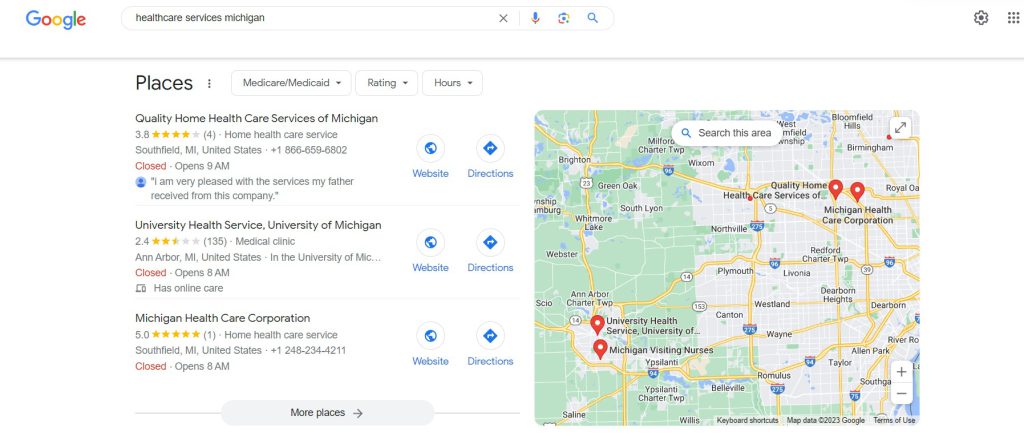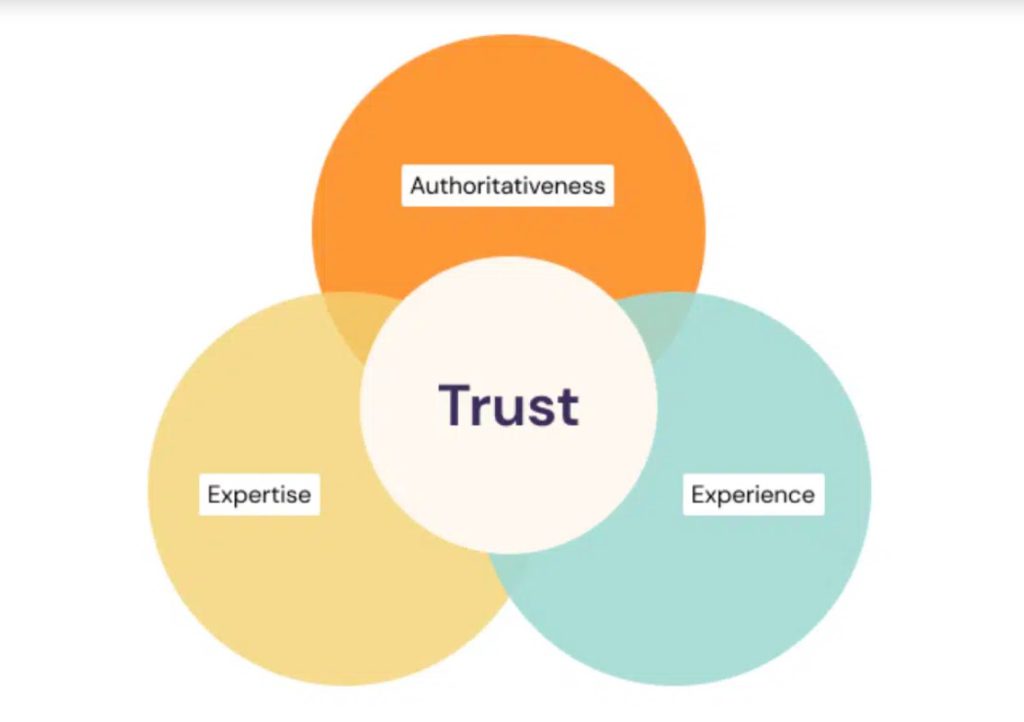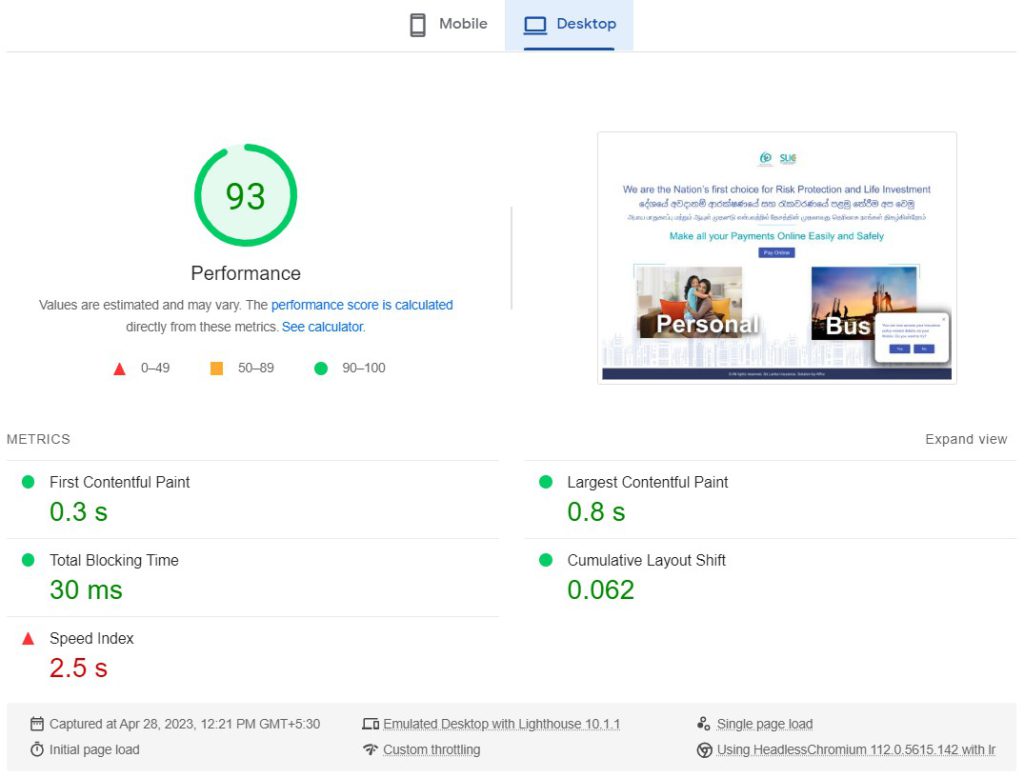SEO for Healthcare : 7-Step Strategy To Drive Organic Traffic
Estimated reading time: 9 minutes
If you're a doctor or run a healthcare organization or medical practice, you need to have a well-optimized website. This is because you're dealing with patients who prioritize reputation, service, and trustworthiness before consulting healthcare businesses.
From local SEO, on-page SEO to user experience all contribute to your website acquiring more organic traffic.
So read this article if you want to learn how to optimize and create a medical SEO strategy and rank in search results in order to maximize the impact of your marketing efforts!
We can help you with on-page, technical and local SEO. Contact us for your healthcare SEO services.
What is SEO in healthcare?
Search engine optimization or SEO in healthcare is the practice of optimizing websites and content for search engine algorithms to maximize their visibility on relevant results pages.
Simply put, optimizing your website for search engine users looking for healthcare organizations, and health services.
For a healthcare business SEO strategy, there should be keyword research, content optimization, technical SEO, link building, and so on.
By using these tactics, healthcare organizations can improve visibility on SERPs, rank higher, drive more organic traffic, gain better brand awareness, and ultimately generate more leads.
Why is SEO important in healthcare?
SEO helps to ensure that your website is visible and easily accessible when potential patients are searching for health-related information or services online.
For example, if someone is searching for a particular service or doctor, they are more likely to find it on the first page of search engine results. Hence, by creating content for medical searches, you can outrank healthcare companies in your target demographic.
By optimizing your website for search engines aligned with Google ranking factors, you can increase search traffic and generate more leads - leading to increased profits and success for your business.
Healthcare SEO Strategy
Local SEO
First, you must create your Google Business Profile and optimize it for local search.
So, when patients are searching online for local services, and for them to find you, your company must appear in Google's local pack.
These four to five businesses are arranged in a group above the organic search results.
They are the only thing users see on mobile devices before scrolling.
Since the majority of the data in these listings are derived from your GBP, you should make sure the following details are true and accessible:


- The business-related categories.
- Your main contact information.
- The company's summary.
- Your operating hours (including any seasonal hours).
- Your service area or residence.
- Your company reviews.
- Local citations are yet another important component of local SEO.
Local directories are web references to your company that include the vital NAP (name, address, phone) details. And Local citations come from newspaper websites, social media profiles, blog postings, business directories, and other places.
Dive Deeper: Local SEO Audit Checklist To Reach More Locals
Use the right medical keywords
The first step in SEO is to identify the keywords or the queries your potential patients searching for. For example, As the majority of users will be in search of medical services, that should be your starting point.
You can use tools like Google's Keyword Planner to compare what is and isn't being searched for to determine the best keywords for your sector, and Google Search Console queries to get the search queries your healthcare site ranks for on search results.
If it's a new medical site, you can use SEMrush Keyword Magic Tool or Ahrefs Keywords Research tools to identify a broad number of keywords related to your services offered.
Based on these, you can create medical content written by medical professionals specifically aimed at search rankings.
Follow Google's "Your Money or Your Life" (YMYL) rules.
Medical websites are considered YMYL pages by Google because they have an influence on users' long-term health, fulfillment, and financial security.
So, Healthcare SEO is no easy task because you need to create engaging, high-quality medical content based on frequently asked questions in the healthcare industry.
Create Optimized content
97% of the businesses surveyed by SEMrush mentioned that they have generated positive results from content marketing.
And the report also pointed out the five best-performing content formats were video, short-form articles, success stories, long-form blog posts, and case studies.
When creating content that ranks in search engine results pages, it is vital that you follow E-E-A-T signals. That is, Experience, Expertise, Authority, and Trustworthiness, these are Google signals to determine the quality of your content.


You must ensure that the content you create matches users' search intent and gives them comprehensive, easy-to-understand, helpful information.
Here's how to get started:
For example, if I want to create a piece of content on cancer,
- Get the keyword volumes from Google Keyword Planner and other related keywords.
- Search on Google for the top-ranking content on cancer and analyze the information provided: format, outline, keywords, and other useful information.
- Create a blog article similar to the top-ranking content but provide much better comprehensive content, incorporating the keywords identified.
Note: Avoid "stuffing" keywords into the content. Google will take action against your website as soon as it discovers this spam practice. Instead, incorporate precise, long-tail keywords in a relevant, legible, and natural manner throughout your material.
Add visual media
According to SEMrush State of Content Marketing Report, articles with at least one video garnered 70% more organic traffic than those without.
Videos, short-form videos, and infographics gain more engagement online.
When you add these interactive media, you can increase web traffic, Google Analytics KPIs such as sessions, and average engagement time on the page.
Combine relevant, high-quality videos with your content as much as possible when optimizing your website for search engines. Many viewers will be drawn to content with more than 600 words of plain text, whether it's a virtual tour of the institution or an educational movie on a medical problem.
Make sure all photos on your website have the proper alt text. Google crawlers and visitors who are blind are both helped by image alt text when figuring out what is presented on the website.
Improve Website Security, Speed, and Mobile Usage
Some of the key ranking factors to determine your website performance include your site's speed, security, and mobile friendliness.
If it takes more than three seconds for your website to load, many visitors might go to one of your competitors’ medical sites that offers a better service. Having said that, also note that slow sites can achieve high rankings for some queries.
Your website should load in no more than two seconds, but ideally, you should aim for less than that. With Google's PageSpeed Insights, you can find out the issues within the website, how to fix them, and get a score on SEO performance and site speed.


For healthcare SEO, security is a critical factor. So, ensure that your website's and your visitors' data is safeguarded against hackers with an SSL certificate.
Your website should, above all else, be mobile-friendly. Developing a responsive design is the greatest method to make sure your site is mobile-friendly. This minimizes the possibility of inconsistent user experiences across devices by automatically adapting your website to suit the screen it is being viewed on. To test this, visit Google Mobile Friendly Test.


Read More: How to Increase Website Page Speed? (Tips+Tools)
Off-Page SEO
Links to your website and social media are just two examples of off-site factors that can affect your search engine rankings.
Even though it isn't a direct ranking criterion, social media offers domain authority and may help reach your target audience more effectively. So, make sure that the social media pages are active and share site content.
A lot of consumers consider social media reviews before making an appointment. For users to locate you and engage with your business in various ways, you should make sure that your social media profiles are current and relevant to your company.
You should also check your links to ensure sure that spammy links aren't possibly harming your SEO efforts.
Check your current link profile and examine the links that appear using your preferred link-building tool. Do they all come from reliable, pertinent sources? Or do a lot of them seem like spam?
Disavow any irrelevant links to optimize your ranking while cleaning up your link profile.
Key Takeaways
SEO is a complex, ever-evolving process that requires an understanding of the human brain and its behavior to be successful.
By leveraging neuroscience sales tips and utilizing tools such as Google PageSpeed Insights and SSL certificates, you can ensure your website meets all requirements for SEO success.
In addition, optimizing your social media presence and investing in local citations are key components of offsite SEO that can help boost visibility online. With these elements firmly in place, you’ll have the foundation needed to start driving more organic traffic – and ultimately converting visitors into customers.
FAQ
Can I hire healthcare SEO specialists?
Absolutely! Numerous digital organizations with a focus on healthcare SEO are available, and some even provide free evaluations before getting started.
How to choose a healthcare SEO agency?
When selecting a healthcare SEO agency, there are several factors that should be taken into consideration. First, it is important to do research on the company and find out what services they offer in order to determine whether they are a good fit for your needs.
It is also essential to make sure the company has experience working with healthcare organizations, as they are likely to have more specialized knowledge in this area.
Additionally, make sure to inquire about the company’s turnaround times and ask for references from past clients. Finally, consider their pricing structure and compare it with other agencies in order to ensure that you get the best possible price for the services.
Reach out to us for healthcare SEO or any SEO services.




